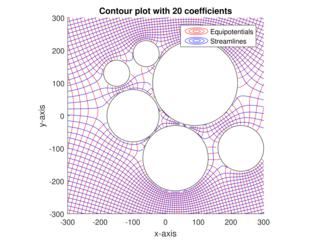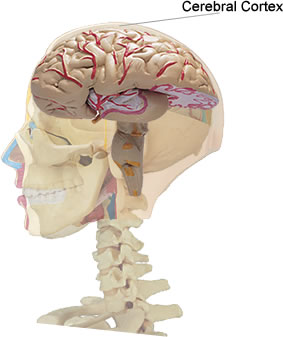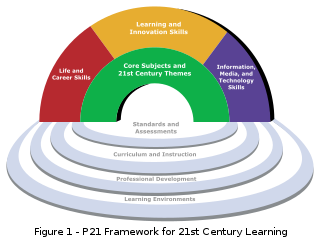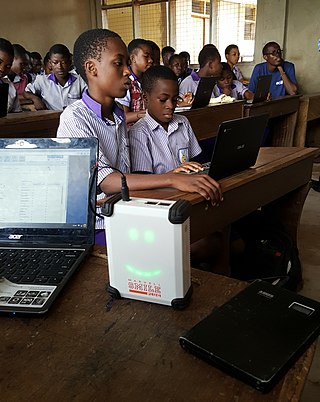Related Research Articles
Metaphilosophy, sometimes called the philosophy of philosophy, is "the investigation of the nature of philosophy". Its subject matter includes the aims of philosophy, the boundaries of philosophy, and its methods. Thus, while philosophy characteristically inquires into the nature of being, the reality of objects, the possibility of knowledge, the nature of truth, and so on, metaphilosophy is the self-reflective inquiry into the nature, aims, and methods of the activity that makes these kinds of inquiries, by asking what is philosophy itself, what sorts of questions it should ask, how it might pose and answer them, and what it can achieve in doing so. It is considered by some to be a subject prior and preparatory to philosophy, while others see it as inherently a part of philosophy, or automatically a part of philosophy while others adopt some combination of these views.

The Socratic method is a form of argumentative dialogue between individuals, based on asking and answering questions. Socratic dialogues feature in many of the works of the ancient Greek philosopher Plato, where his teacher Socrates debates various philosophical issues with an "interlocutor" or "partner".

Richard McKay Rorty was an American philosopher. Educated at the University of Chicago and Yale University, Rorty's academic career included appointments as the Stuart Professor of Philosophy at Princeton University, the Kenan Professor of Humanities at the University of Virginia, and as a professor of comparative literature at Stanford University. Among his most influential books are Philosophy and the Mirror of Nature (1979), Consequences of Pragmatism (1982), and Contingency, Irony, and Solidarity (1989).

An interview is a structured conversation where one participant asks questions, and the other provides answers. In common parlance, the word "interview" refers to a one-on-one conversation between an interviewer and an interviewee. The interviewer asks questions to which the interviewee responds, usually providing information. That information may be used or provided to other audiences immediately or later. This feature is common to many types of interviews – a job interview or interview with a witness to an event may have no other audience present at the time, but the answers will be later provided to others in the employment or investigative process. An interview may also transfer information in both directions.
Critical thinking is the process of analyzing available facts, evidence, observations, and arguments to make sound conclusions or informed choices. It involves recognizing underlying assumptions, providing justifications for ideas and actions, evaluating these justifications through comparisons with varying perspectives, and assessing their rationality and potential consequences. The goal of critical thinking is to form a judgment through the application of rational, skeptical, and unbiased analyses and evaluation. In modern times, the use of the phrase critical thinking can be traced to John Dewey, who used the phrase reflective thinking, which depends on the knowledge base of an individual; the excellence of critical thinking in which an individual can engage varies according to it. According to philosopher Richard W. Paul, critical thinking and analysis are competencies that can be learned or trained. The application of critical thinking includes self-directed, self-disciplined, self-monitored, and self-corrective habits of the mind, as critical thinking is not a natural process; it must be induced, and ownership of the process must be taken for successful questioning and reasoning. Critical thinking presupposes a rigorous commitment to overcome egocentrism and sociocentrism, that leads to a mindful command of effective communication and problem solving.
PQ may refer to:
Philosophy for Children, sometimes abbreviated to P4C, is a movement that aims to teach reasoning and argumentative skills to children. There are also related methods sometimes called "Philosophy for Young People" or "Philosophy for Kids". Often the hope is that this will be a key influential move towards a more democratic form of democracy. However, there is also a long tradition within higher education of developing alternative methods for teaching philosophy both in schools and colleges.
Problematization is a process of stripping away common or conventional understandings of a subject matter in order to gain new insights. This method can be applied to a term, writing, opinion, ideology, identity, or person. Practitioners consider the concrete or existential elements of these subjects. Analyzed as challenges (problems), practitioners may seek to transform the situations under study. It is a method of defamiliarization of common sense.

The analytic element method (AEM) is a numerical method used for the solution of partial differential equations. It was initially developed by O.D.L. Strack at the University of Minnesota. It is similar in nature to the boundary element method (BEM), as it does not rely upon the discretization of volumes or areas in the modeled system; only internal and external boundaries are discretized. One of the primary distinctions between AEM and BEMs is that the boundary integrals are calculated analytically. Although originally developed to model groundwater flow, AEM has subsequently been applied to other fields of study including studies of heat flow and conduction, periodic waves, and deformation by force.

Vertical thinking is a type of approach to problems that usually involves one being selective, analytical, and sequential. It could be said that it is the opposite of lateral thinking. Unlike lateral thinking that involves using added intuition, risk taking, and imagination through unconscious and subconscious processes, vertical thinking consists of using more of a conscious approach via rational assessment in order to take in information or make decisions. This type of thinking encourages individuals to employ a sequential approach to solving problem where a creative and multidirectional response are seen as imprudent. Vertical thinkers prefer to rely on external data and facts in order to avoid failure or counterfactual thinking.

The following outline is provided as an overview of and topical guide to thought (thinking):
Action Learning is an approach to problem solving that involves taking action and reflecting upon the results. This method is purported to help improve the problem-solving process and simplify the solutions developed as a result. The theory of Action Learning and its epistemological position were originally developed by Reg Revans, who applied the method to support organizational and business development initiatives and improve on problem solving efforts.
Dennis Matthies is an American academic.

Socratic questioning is an educational method named after Socrates that focuses on discovering answers by asking questions of students. According to Plato, Socrates believed that "the disciplined practice of thoughtful questioning enables the scholar/student to examine ideas and be able to determine the validity of those ideas". Plato explains how, in this method of teaching, the teacher assumes an ignorant mindset in order to compel the student to assume the highest level of knowledge. Thus, a student is expected to develop the ability to acknowledge contradictions, recreate inaccurate or unfinished ideas, and critically determine necessary thought.

Analytical skill is the ability to deconstruct information into smaller categories in order to draw conclusions. Analytical skill consists of categories that include logical reasoning, critical thinking, communication, research, data analysis and creativity. Analytical skill is taught in contemporary education with the intention of fostering the appropriate practices for future professions. The professions that adopt analytical skill include educational institutions, public institutions, community organisations and industry.
Convergent thinking is a term coined by Joy Paul Guilford as the opposite of divergent thinking. It generally means the ability to give the "correct" answer to questions that do not require novel ideas, for instance on standardized multiple-choice tests for intelligence.
In U.S. education, deeper learning is a set of student educational outcomes including acquisition of robust core academic content, higher-order thinking skills, and learning dispositions. Deeper learning is based on the premise that the nature of work, civic, and everyday life is changing and therefore increasingly requires that formal education provides young people with mastery of skills like analytic reasoning, complex problem solving, and teamwork.

21st century skills comprise skills, abilities, and learning dispositions identified as requirements for success in 21st century society and workplaces by educators, business leaders, academics, and governmental agencies. This is part of an international movement focusing on the skills required for students to prepare for workplace success in a rapidly changing, digital society. Many of these skills are associated with deeper learning, which is based on mastering skills such as analytic reasoning, complex problem solving, and teamwork, which differ from traditional academic skills as these are not content knowledge-based.

Stanford Mobile Inquiry-based Learning Environment (SMILE) is a mobile learning management software and pedagogical model that introduces an innovative approach to students' education. It is designed to push higher-order learning skills such as applying, analyzing, evaluating, and creating. Instead of a passive, one-way lecture, SMILE engages students in an active learning process by encouraging them to ask, share, answer and evaluate their own questions. Teachers play more of the role of a “coach,” or “facilitator”. The software generates transparent real-time learning analytics so teachers can better understand each student's learning journey, and students acquire deeper insight regarding their own interests and skills. SMILE is valuable for aiding the learning process in remote, poverty-stricken, underserved countries, particularly for cases where teachers are scarce. SMILE was developed under the leadership of Dr. Paul Kim, Reuben Thiessen, and Wilson Wang.
The Cognitive Theory of Inquiry Teaching, also referred to as the Cognitive Theory of Interactive Teaching, was developed by Allan Collins and Albert L. Stevens. Allan Collins was a chief scientist at Bolt Beranek and Newman Inc., a research firm in Cambridge Massachusetts. He is also a specialist in the field of cognitive science and human semantic processing. Albert L. Stevens was a senior scientist at Bolt Beranek and Newman Inc. He was also director of the company's Artificial Intelligence, Education Technology and Training Systems Division. He is also a specialist in cognitive science. The Cognitive Theory of Inquiry Teaching according to Collins and Stevens (1981) requires the learner to construct theories and principles through dialogue, the teaching of self-questioning techniques and the teaching of metacognitive or self-monitoring skills, all with the intent of clarifying misconceptions so the theory or principle is well articulated and developed. The essence of the cognitive theory of Inquiry teaching is that of developing students' metacognitive skills. Inquiry teaching deliberately attempts to develop these stills through instruction.
References
- ↑ "Vervago". San Diego, California: Vervago. Retrieved 2008-10-01.
Vervago can help you cultivate sharper minds, making intellectual strength a sustainable competitive advantage for your organization. Our acclaimed workshop, Precision Questioning, provides a set of intellectual tools to meet the challenges of today's complex, fast-paced workplace.
- ↑ "Biographies". San Diego, California: Vervago. Archived from the original on 2009-09-02. Retrieved 2009-10-01.
Dennis Matthies is Vervago's co-founder and creator of the Precision Questioning technique. [...] Monica Worline is Vervago's co-founder and co-creator of Precision Questioning for business and professional organizations.